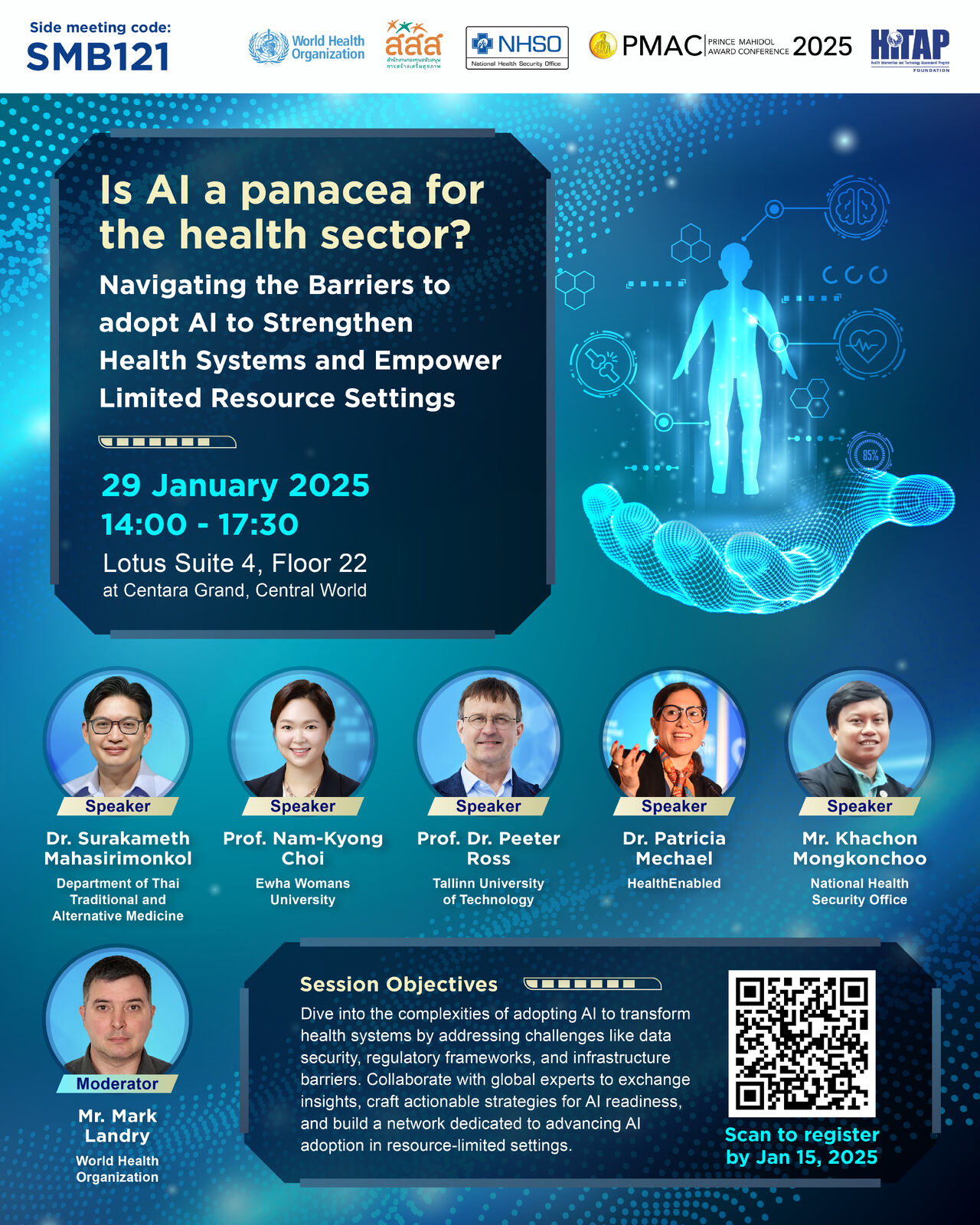Side Meetings
SMB121
Is AI a panacea for the health sector? Navigating the Barriers to adopt AI to Strengthen Health Systems and Empower Limited Resource Settings
29
Jan
- Health Intervention and Technology Assessment Program Foundation (HITAP)
- World Health Organization (WHO)

The rapid evolution of artificial intelligence (AI) is transforming multiple sectors, and healthcare is no exception where it is being used to advance delivery of care, patient management, and therapeutic development. In clinical settings, AI is being used to support clinical decision-making through AI-enabled medical devices, patient assessments, and care triaging. AI plays a critical role in drug discovery, where it helps identify therapeutic candidates, and in clinical research. However, despite these advancements and recognition of the important role and adoption in many high income countries, the full integration of AI and digital health technologies remains hindered by several barriers—particularly in resource-limited settings—comes with significant challenges, including data security and privacy concerns, algorithmic bias, the need for regulatory frameworks, economic and infrastructure barriers, and the necessity for workforce training and readiness.
This side seeks to provide a platform to explore the challenges and share experiences in adopting AI technology in healthcare from various perspectives. The goal is to identify concrete next steps for building AI readiness in resource-constrained settings, focusing on the appropriateness (finding the right priority use case), equitability (optimising AI for health for all), and feasibility (explore options analysis) of AI.
The objectives of this side meeting are to:
- Explore global insights and deepen understanding of the key challenges in adopting AI to strengthen health systems, with a focus on data security and privacy, regulatory frameworks, and economic and infrastructure barriers.
- Generate actionable steps that participants can implement to support and enhance AI readiness initiatives in their respective contexts.
- Foster a network of experts to initiate collaboration and drive forward AI adoption to strengthen health systems in limited resource settings.

